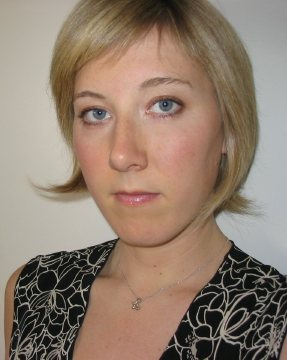And now we have something called the 'egg timer', a simple blood test provided by IVF Australia that will allow women to know just how fast their biological clocks are ticking....for $65 you can find out how many eggs you have left...
"I think this is a big step forward," medical director of IVF Australia, Assistant Professor Peter Illingworth, told The Sunday Mail.
"For a woman who is facing decisions about how active they should get about chasing her fertility in one way or another, it's information about what the future may hold for her.
"For a 30-year-old woman, it gives her an idea of whether she's at risk of having an early menopause or she's got plenty of time to carry on and have a baby."
I'm not impressed..or at least I'm of two minds about this. For women who have been struggling with infertility, knowing exactly what kind of situation you are facing in trying to get pregnant can be extremely useful. What worries me is that this sort of 'fertility alarm' only contributes to the cautionary tales fed to women at increasingly earlier ages about having children (which perhaps coincidentally comes at a time when more women are being educated and are working in the paid workforce than any other time in history).Researchers say that this test relieves women of the 'anguish' of 'uncertainty'. Yet, isn't this what reproduction is fundamentally about? Lots of social commentators have been banging on about how this tests gives women 'choices'. Well, as you all know, 'choice' for me, is a big yay. But, on the other hand, what kind of 'choice' is this really? You either get pregnant because you are 'running out of time' or you have to live with the knowledge that your clock is ticking sooner than you may be ready to shut it off. I think it's a loaded 'choice' and puts a lot of pressure on women who are already feeling it without having a test tell them they are getting older.

1 comment:
I realize that I'm looking at this as a 35 y/o woman dealing with infertility*, but I do think that any woman who thinks that she might want to have children someday should be aware of her fertility. Now, to me, this does not mean pushing women to have children before they are in a place in their lives to do so. It does mean being aware that waiting to have children may increase the odds of facing infertility and present another set of hard choices: Pursue expensive and invasive infertility treatments? And if so, how far (IVF with own gametes? Donor gametes?) and for how many cycles? Pursue adoption, with its own risks and rewards? Or live child-free and become a kick-ass "aunt" to others' children? Both IVF and adoption can be incredibly expensive, so a woman who might end up pursuing one of these options will want to save accordingly.
I am a feminist, and I believe strongly in women's rights to pursue their ambitions and dreams. But if those ambitions and dreams do include children, it does women a disservice to pretend that biology has kept pace with sociology.
*My own infertility is a combination of endometriosis and sub-optimal sperm on my husband's part, so while waiting until age 33 to start trying to have children probably didn't help, my problems are not primarily age-related.
Post a Comment